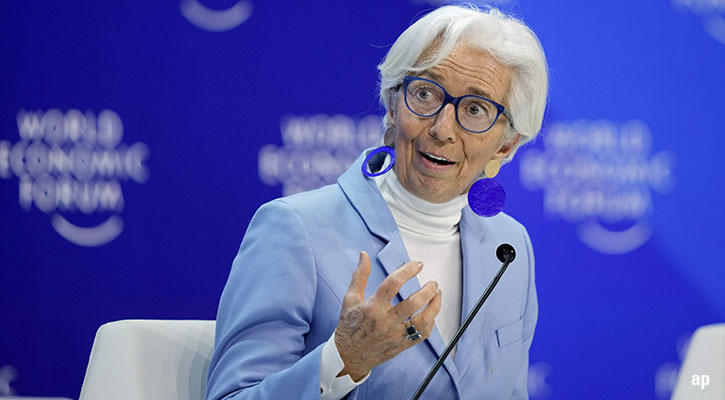Is the silver tongue of European Central Bank president Mario Draghi now tarnished? No longer do his words speak louder than actions.

Ireland and Spain, regarded as basket cases after the financial crisis, are doing particularly well

According to the morning newspapers, markets were braced for drastic action to kick start the Eurozone. They were not braced for what actually happened. Draghi announced a tiny reduction in one relatively insignificant interest rate and declined to raise the amount of quantitative easing that the ECB is belatedly carrying out.
He did extent the time frame for QE beyond next September so something could happen in 10 months’ time. I can’t wait.
It’s not Draghi’s fault. He has so many different governments to keep happy that he is hamstrung. The miracle is that his constant reassurance that he will do whatever is necessary to revive the Eurozone has been taken at face value.
Not anymore. The days of Draghi conjuring gold out of dross are over. Stock markets collapsed across Europe. The London market had merrily shrugged off the overwhelming vote by MPs to bomb whatever we now call the people we hate most in Syria and was 21 points up on the day before Draghi weighed in.
The failure to step up quantitative easing is clearly far more serious than the possible start of a major conflict and heightened terrorist activity. The FTSE 100 index ended down 2.2%. Compared with exchanges in Germany, France and Spain, we got off lightly.
I think that reaction was grossly overdone. In fact, figures from market research group Markit suggest that economic activity in the Eurozone has picked up a little. Ireland and Spain, regarded as basket cases after the financial crisis, are doing particularly well.
Markit’s purchasing managers indices are a pretty reliable guide to economic growth. Although its figures for the UK construction and manufacturing sectors earlier in the week were disappointing, those for the dominant services sector more than made up. The UK is in line to maintain momentum despite fears of a slowdown during the third quarter of 2015.
Meanwhile Federal Reserve Board chair Janet Yellen is mercifully free of the restraints under which the ECB labours. I still have doubts whether the first tiny rise in US interest rates will come this month but it will surely happen by January at the latest. To delay further would raise fears that the US economy is deteriorating rapidly.
Yellen said in September that the slowing global economy – mainly China – put too many doubts over raising rates then. This week she indicated that, barring a “sudden external shock”, events abroad will not prevent a rise. This is a significant shift in emphasis.
When it comes, the effect of a US rate rise should be rather less dramatic than Draghi managed this week.
Biting the Bullet and Buying Banks
I promised last week that I would stop procrastinating and invest my accumulated ISA dividends. On Monday I opted with some trepidation to top up my Lloyds Bank (LLOY) holding at 72.5p. The shares have slipped from a recent peak of 89p, thanks mainly to the senseless notion of selling government shares cheaply in the retail market.
I got in just before the latest stress tests on UK banks, in which Lloyds came out as well as anybody, and the shares duly responded with a 2p gain the day after my purchase. I’m not entirely happy, as Lloyds is now the largest holding in my portfolio, so I have a little too much riding on its fortunes.
However, it remains for my money the best choice in UK banking at the moment, followed by Barclays (BARC) and HSBC (HSBA). Royal Bank of Scotland (RBS) and Standard Chartered (STAN) fared worst in the Bank of England’s stress test this week and I cannot understand why RBS shares rose in the aftermath. I continue to rate it the least attractive banking buy for investors, especially as there is a massive government holding waiting to swamp the market.
Rodney Hobson is a long-term investor commenting on his own portfolio; his comments are for informational purposes only and should not be construed as investment advice. His views are not necessarily the views of Morningstar UK.





























